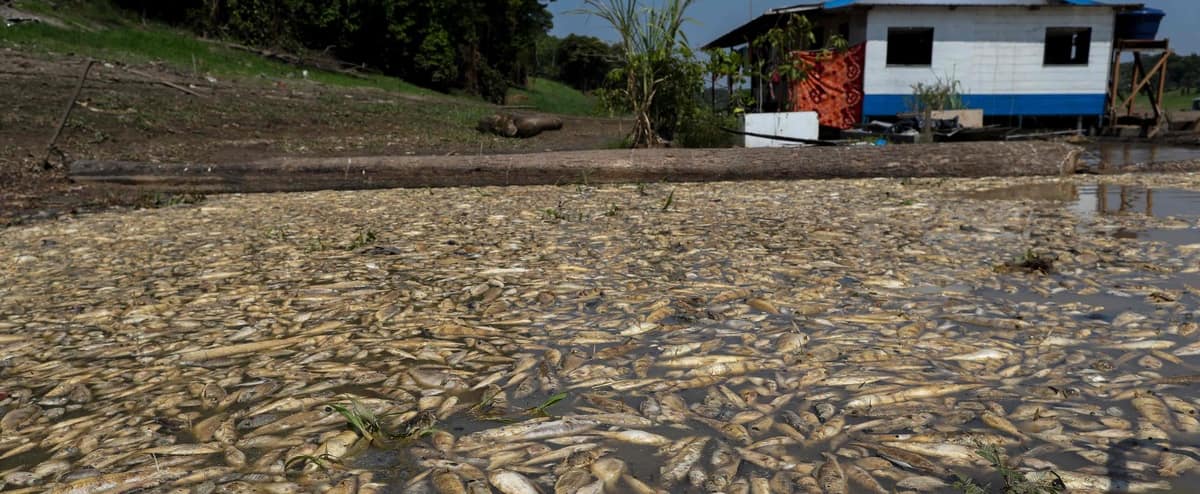About 10% of the dolphin population in a lake in the Brazilian Amazon was wiped out within a week in late September due to the region’s heat wave and historic drought, researchers announced Tuesday.
• Also read: The difficult progress of the rights of indigenous peoples around the world
• Also read: Climate: 2023 will approach the 1.5°C mark of the Paris Agreement
• Also read: Amphibians are more threatened than ever before due to climate change
According to the Mamiraua Institute for Sustainable Development and the Brazilian branch of the Environmental Protection Agency, a total of 153 dead dolphins were found in Lake Tefé in the last week of September, where the water temperature was 39.1 degrees, seven more than normal, according to the NGO WWF.
This lake is located in the state of Amazonas, where the Tefé River flows into the Amazon, in the heart of the largest tropical forest on earth.
Researchers recorded the deaths of 130 pink dolphins and 23 tucuxi dolphins. Hundreds of fish also died in the lake.

AFP
“What is happening in Lake Tefé is frightening. “The impact of the loss of these animals is enormous and affects the entire local ecosystem,” WWF’s Mariana Paschoalini Frias was quoted as saying in a press release.
“These dolphins are considered sentinels, witnesses to the health of the environment around them. What happens to them is reflected on other creatures living in the region, including humans,” she emphasizes.
The Amazon’s extreme drought has also caused rivers to fall to critical levels, causing huge problems for river navigation, which is crucial to supplying remote communities.
The level of the Rio Negro, one of the main tributaries of the Amazon, fell to 13.49 meters, the highest level since measurements began in 1902, according to local authorities at the port of Manaus.
And it is precisely this city of Manaus, the most important metropolis in the Brazilian Amazon, that has been flooded by clouds of smoke from forest fires in recent days.
According to experts, the situation is made worse by the El Niño phenomenon, which reduces cloud formation and thus rainfall.
But Brazilian Environment Minister Marina Silva also blamed “uncontrolled climate change”.

